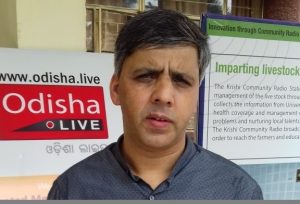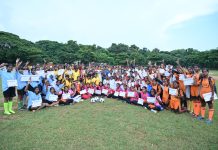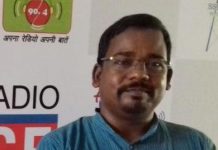
An exclusive interview with Dr. Shahid Rasool, Director, Commonwealth Educational Media Centre for Asia (CEMCA) by Shyamal Kishore, Associate Editor – OdishaLIVE on the status and future of Community Radio in India and South asia.
You are working in the field of media innovation. What is the progress in the field?
The whole of South East Asia is not able to provide quality education to everyone. We are working to provide equal opportunity to all students in the urban as wells rural areas with an aim to provide quality education. Community radio is a new and effective tool as well as part of the community. So we are working with community radio to make available the accessible resources and information to reach everybody for their benefit.
What are the challenges of Community Radio in a diverse geography like India?
India is a huge country with more than a billion people and with over 40 % youth often referred as a young country unlike the older west. The challenge lies in training the youth to earn well for themselves as well as the country. There are very less number of community radio stations in the country and the popular mass media has turned corporate. To some extent, the national broadcaster, in spite of their commendable job has lost focus on the public service mandate. You don’t find more stories on the common people and hence our effort at Commonwealth is to pursue the government to engage in people centric issues by employing community radio stations. And these community radio stations too have to go beyond radio broadcast to capture the young tech savvy mass on their smart devices.
In India Community Radio was supposed to have managed by the community. But till that it has not been done. What’s your view on this?
Absolutely. But the thing is community can’t be given a license. It is a difficult question to give or not to give to the community, but we have to scrutinize an individual or a group of individuals to fix responsibility and accountability because it is a sensitive matter. We ought to have a regulatory approach but at the same time it has to be a capacity building exercise on how to make community radio useful to the people with their fullest involvement.
Sustainability is an issue for the promoters of Community Radio. What are your insights on that?
In the west, community radio is mostly managed by community donations. In India like countries, this is not a common practice yet. If community radio is successfully imparting its duties then the community should run the radio station and that in itself will be sustainable rather than looking up to government or corporate funding. Community radio should make itself relevant to people so that the community comes forward to make it sustainable.
How do you place India with Community Radio practices around the world?
Though India is doing good, being a huge country our challenges are even more. We envisage more than 4000 community radio stations across the country, but after a decade and a half of the regulation passed, we have merely 206 community radio stations in the whole. So our responsibility is enormous. In a diverse country like India, the requirement of community radio is tremendous.
What are your remarks for this National Consultation on Community Radio?
This national consultation is a very good idea as more than 40 community radio stations from 19 states have come forward to share their best practices and success stories, which will inspire each other. But I would like to remark that community radio stations have to work together in tandem. The problems and opportunity they have are almost the same. Hence if they can exchange ideas and content, it would be a boost to the sector. For content generation, it needs money that is not easily available to these community radio stations thus helping each other sustain. The need of the hour is a consortium to help each other and share expertise with outside organisations in order to prosper.
How can CEMCA help the CR stations?
The Commonwealth Educational Media Centre for Asia (CEMCA) is particularly working actively in the field of community radio to collaborate and we are looking for partners like UNESCO and other community radio stations to push this revolution in a big way. Likewise we are working for 8 community radio stations in the North East and we are looking for partners in this domain to come forward and make the community radio a big success.
(The interview was conducted on the sidelines of the 2-day National Consultation on ‘Community Radio: Furthering Rights based Work and Justice to Marginalized Community’ held on 2nd & 3rd August 2017 at Bhubaneswar jointly organised by ActionAid and Young India. OdishaLIVE was the Digital Media Partner of the event.)















It is really a good advice for the community radio stations to come forward and share content and experiences. And they should also think beyond broadcasting, as rightly discussed at the event held at Bhubaneswar, recently.